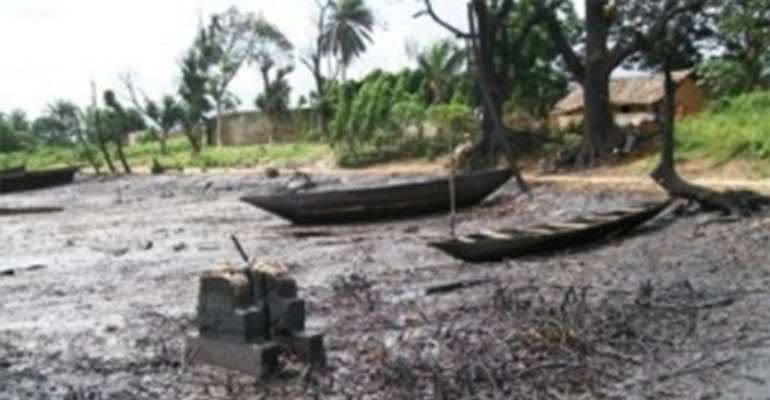Shell & the Politics of Oil

Shell BP is one of the oldest Oil companies operating in Nigeria. It is also believed to have strong ties to powerful people in government. Like its counterpart in the construction company, Shell has survived successive regime changes in Nigeria, including both military and civilian. It's Teflon quality is not because of its altruistic or philanthropic ventures, neither is it because the company has an undying love for the average Nigerian. It is rather because it knows how to play the politics of Oil.
It was not surprising when this week Amnesty International investigation revealed that Shell was being very disingenuous in its actions. Apparently, shell was not reporting the actual volume of oil spills and the resultant environmental degradation.
In its website, Amnesty International has this to say, “Oil pollution and environmental damage continued to wreak havoc on people's lives and livelihoods in the Niger Delta. Environmental laws and regulations were poorly enforced. Recommendations on the clean-up of the Ogoniland region of the Niger Delta, made by the UN Environment Programme in a major study published in 2011, were not implemented by the end of 2012. On and around 21 June, an oil spill was discovered in the Bodo community in the Niger Delta. The leak was only stopped on 30 June. The pipeline was the responsibility of Shell. An investigation into the cause of the spill was delayed and had not completed by the end of the year, nor had the spill been cleaned. On 11 October, a court case instituted against the oil company Shell by a group of farmers from the Niger Delta began at The Hague in the Netherlands. On 14 December, a landmark judgment by ECOWAS found the Nigerian government had failed to prevent oil company operations from damaging human rights, and required the government to enforce adequate regulation of oil operations.”
It was even appalling that Shell and its cohorts had the effrontery to blame third parties for the oil spill instead of accepting responsibility. We are happy that the report is out and personalities that Delta State Governor Dr. Emmanuel Uduaghan, CON have called on Shell to own up.
The National Oil Spill Detection and Response Agency (NOSDRA) was formed “with responsibility for preparedness, detection and response to all oil spillages in Nigeria” and mandated to penalize oil companies but has not. For example the Act States that “(2) Penalties. An oil spiller is by this Act to report an oil spill to the Agency in writing not later than 24 hours after the occurrence of an oil spill, in default of which the failure to report shall attract a penalty in the sum of five hundred thousand naira (N5OO, OOO.OO) for each day of failure to report the occurrence. (3) The failure to clean up the impacted site, to all practical extent including remediation, shall attract a further fine of one million naira.”
According to Environewsnigeria, the National Oil Spill Detection and Response Agency (NOSDRA) was established by Act No. 15 of 2006 as a deliberate and articulate response by the Federal Government to the persistent environmental degradation and devastation of the coastal ecosystem especially, in the oil-producing areas of the Niger-Delta region. The NOSDRA Act had issues of bad regulations, fines and penalties. It appears to have no teeth and all attempts to amend it has been stalled. A bill to amend it sponsored by Senator Abubakar Bukola Saraki (Kwara Central), the Senate Committee Chairman on Environment and Ecology is still pending. The bill would have changed the name NOSDRA and re-designated it as the National Oil Pollution Management Agency (NOPMA). Of course, we all know of the Petroleum Industry Bill (PIB) - another law that the Oil companies have successfully lobbied to prevent its passage.
We all know that the devastating effects of oil spills in Nigeria can neither be properly quantified nor fully appreciated. Even the compensation of the Niger-Delta freedom fighters (militants) cannot adequately address the malaise.
This month is not a very pleasant one in the history of Nigeria and human rights. It was on November 10, 1995 that Human and environmental rights activist Ken Saro-Wiwa was hanged with eight others called the Ogoni 9. The hanging was ordered by general Sani Abacha without regard to the outcry of the international community. This same Abacha two years earlier, on November 17, 1993, forced Ernest Shonekan was forced to resign from office. Abacha who was Defence Minister became Head of State and established the Provisional Ruling Council of Nigeria.
Our checkered history of politics can no longer be swept under the rug, especially in a democracy and especially when the oil spill is going on in the backyard of the President.
Let us pass the PIB and also give NOSDRA more power by amending it.
